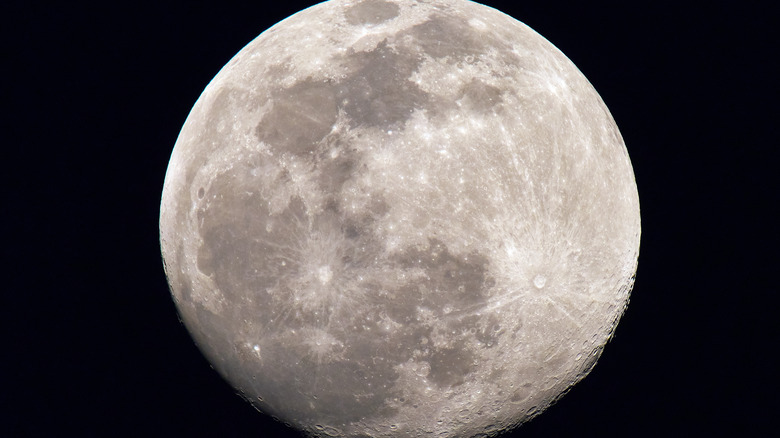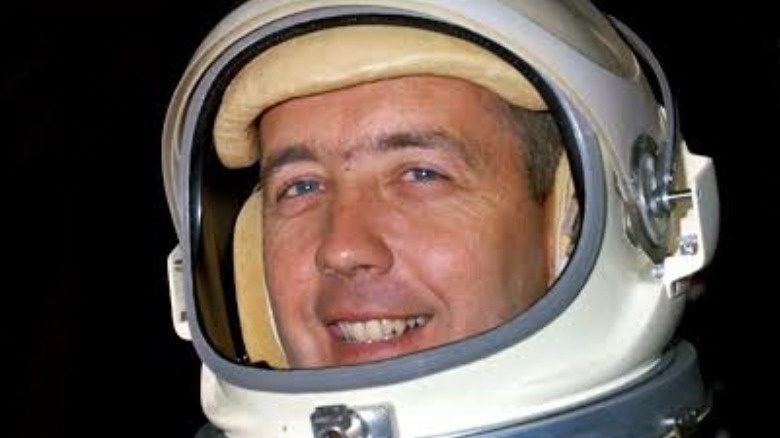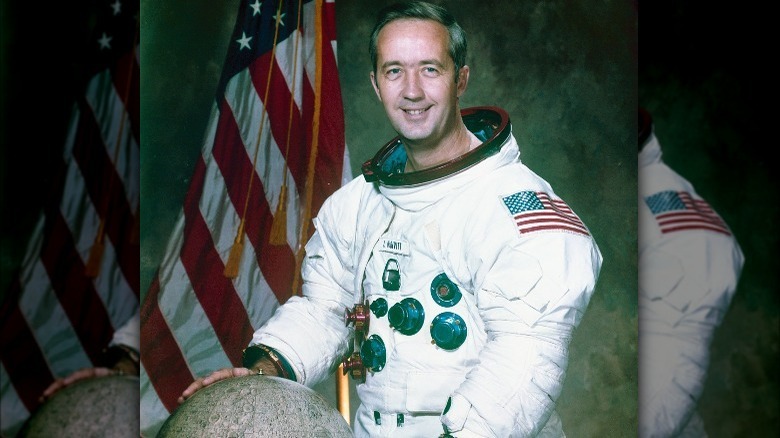Why Apollo 9 Commander James McDivitt Said No When He Was Asked To Walk On The Moon
The NASA space program might not be what it is today without astronaut James A. McDivitt, who died at the age of 93 on October 13, according to a NASA statement. As of this report, McDivitt's cause of death and where he died were not specified. McDivitt played a part in many early accomplishments for the U.S. space program. He commanded the federal agency's first spacewalk mission, and he was a crew member on the first orbital flight of a lunar module, per The New York Times.
But as NPR notes, the Korean War veteran never stepped foot on the moon, though he had the chance. That honor goes to Neil Armstrong (via NASA). McDivitt did play an important role in that first lunar mission, however, and that he turned down such an historic opportunity goes to show that the success of the American space program was of a higher priority for McDivitt than were his own accomplishments.
McDivitt piloted an Apollo 9 test mission
McDivitt's last space mission came in 1969 when he piloted a prototype of the Apollo 9 space module with Russell L. Schweickart on a 10-day mission in the Earth's orbit. After that test mission, Apollo 11 carried Neil Armstrong and Buzz Aldrin to the moon a short time later, as The New York Times explains. McDivitt's first big achievement in space came some seven years earlier, in 1962. It was at that time that McDivitt became the first new recruit at NASA to lead a mission, according to NPR.
Prior to his work on the Apollo 9 test flight in orbit, McDivitt piloted Gemini 4, and it was on that same flight, in 1965, that Ed White became the first American astronaut to walk in space. At four days in orbit, that Gemini 4 mission was also the longest U.S. space flight in history at that time. Shortly after McDivitt returned home from the Apollo 9 test mission, NASA was ready to try to send a man to the moon. It was then that McDivitt decided to take an important but behind-the-scenes role for the space agency.
McDivitt managed the Apollo 11 mission
What may have also contributed to McDivitt's decision to remain on Earth rather than try for a moon walk was the fact that Ed White and two other astronauts died in a test when a prototype of the Apollo 11 caught fire at Cape Canaveral in Florida, based on The New York Times reporting. Though he would not reach the moon's surface, McDivitt did play an important role in the overall success of the Apollo 11 mission as the program manager.
On McDivitt's decision to pass on a moon landing, spaceflight historian Francis French told NPR, "It was more important to McDivitt that the overall program was a success than to personally land on the moon ... It's very unusual to find people in life who are both light-hearted and really dedicated to their job. And this guy was one of those rare examples of both," French added. McDivitt went on to manage Apollo programs 12 through 16, and in 1972, he retired from NASA and worked in the private sector.


